In this e-weekly:
- Defending the Bride (Catholic Website of the week-by the laptop computer)
- 'The Joy of Knowing Jesus,' The Holy Witness of Michelle Duppong (Diocesan News and BEYOND)
- Recycling (Helpful Hints for Life)
-***NEW FEATURE*** CATHOLIC QUESTIONS AND CATHOLIC ANSWERS is a new section of the e-weekly (see below) ***NEW FEATURE***
BEST PARISH PRACTICES is also back!
- Defending the Bride (Catholic Website of the week-by the laptop computer)
- 'The Joy of Knowing Jesus,' The Holy Witness of Michelle Duppong (Diocesan News and BEYOND)
- Recycling (Helpful Hints for Life)
-***NEW FEATURE*** CATHOLIC QUESTIONS AND CATHOLIC ANSWERS is a new section of the e-weekly (see below) ***NEW FEATURE***
BEST PARISH PRACTICES is also back!
Catholic Good News
Receiving the Gospel, Serving God and Neighbor
Act of Faith, Act of Hope, Act of Love
“So faith, hope, love remain, these three; but the greatest of these is love.”
I Corinthians 13:13
Receiving the Gospel, Serving God and Neighbor
Act of Faith, Act of Hope, Act of Love
“So faith, hope, love remain, these three; but the greatest of these is love.”
I Corinthians 13:13
Dear friends in Christ Jesus,
At home, my family still prays before and after every meal. After breakfast, mom or dad always add the Act of Faith, Act of Hope, and Act of Love prayers along with other morning prayers. They do this because they were taught this in their youth, and because it has helped to keep them faithful to God and one another their whole life long.
I have searched for these prayers as mom and dad were taught them, but I have not found them. So finally I asked my dad to write them down because they are so simple, yet so profound. And these 3 are virtues are known as the very important theological virtues.
I did this so that I might add them to my daily prayers and pass them on you. We all need more faith, hope, and love in our lives, our marriages, our families, our communities, and our world. May this begin with you and with me!
Peace and prayers in Jesus through Mary, loved by Saint Joseph,
Father Robert
P.S. These prayers are found in the prayer section below.
P.S.S. This coming Sunday is the 16th Sunday of Ordinary Time. https://bible.usccb.org/bible/readings/072323.cfm
P.S.S.S. Readings with questions for self or family reflection found at the end of e-weekly.
At home, my family still prays before and after every meal. After breakfast, mom or dad always add the Act of Faith, Act of Hope, and Act of Love prayers along with other morning prayers. They do this because they were taught this in their youth, and because it has helped to keep them faithful to God and one another their whole life long.
I have searched for these prayers as mom and dad were taught them, but I have not found them. So finally I asked my dad to write them down because they are so simple, yet so profound. And these 3 are virtues are known as the very important theological virtues.
I did this so that I might add them to my daily prayers and pass them on you. We all need more faith, hope, and love in our lives, our marriages, our families, our communities, and our world. May this begin with you and with me!
Peace and prayers in Jesus through Mary, loved by Saint Joseph,
Father Robert
P.S. These prayers are found in the prayer section below.
P.S.S. This coming Sunday is the 16th Sunday of Ordinary Time. https://bible.usccb.org/bible/readings/072323.cfm
P.S.S.S. Readings with questions for self or family reflection found at the end of e-weekly.
534. What is prayer? (Catechism of the Catholic Church, CCC, 2558-2565, 2590)
a) the raising of one’s mind and heart to God
b) the petition of good things from him in accord with his will
c) the personal and living relationship of the children of God with their Father who is infinitely good
d) All of the above.
535. Why is there a universal call to prayer? (CCC 2566-2567)
a) only because every one needs prayer
b) prayer changes God
c) God draws every person to the mysterious encounter known as prayer
d) prayer is magic and by it I get what I want
THE REVELATION OF PRAYER IN THE OLD TESTAMENT
536. How is Abraham a model of prayer? (CCC 2570-2573, 2592)
a) his prayer was spoken the loudest
b) he walked in the presence of God, heard and obeyed him
c) he gave 1/10 of everything to the king-priest Melchizedek
d) he is the father of many nations
537. How did Moses pray? (CCC 2574-2577, 2593)
a) in a way like Jesus would pray
b) he lingered in conversation with him often and at length
c) face to face, like a man with his friend
d) all of the above
a) the raising of one’s mind and heart to God
b) the petition of good things from him in accord with his will
c) the personal and living relationship of the children of God with their Father who is infinitely good
d) All of the above.
535. Why is there a universal call to prayer? (CCC 2566-2567)
a) only because every one needs prayer
b) prayer changes God
c) God draws every person to the mysterious encounter known as prayer
d) prayer is magic and by it I get what I want
THE REVELATION OF PRAYER IN THE OLD TESTAMENT
536. How is Abraham a model of prayer? (CCC 2570-2573, 2592)
a) his prayer was spoken the loudest
b) he walked in the presence of God, heard and obeyed him
c) he gave 1/10 of everything to the king-priest Melchizedek
d) he is the father of many nations
537. How did Moses pray? (CCC 2574-2577, 2593)
a) in a way like Jesus would pray
b) he lingered in conversation with him often and at length
c) face to face, like a man with his friend
d) all of the above
act of faith
-a voluntarily expressed assent of the mind to some truth revealed by God.
[The assent may be purely internal, or it may be vocalized, as in the recitation of the Apostle's Creed, or it may be implied, as in genuflecting before the Blessed Sacrament. It must always be assisted by divine grace.]
act of hope
-a voluntarily expressed trust in God's goodness, based on faith, whereby a person declares his confidence that what God promised He will also fulfill
[As a supernatural act, it can be made only with the help of divine grace.]
act of love
-a deliberately expressed love of God, based on divine faith
[The act may be either perfect or imperfect, depending on whether the motive is God's goodness in himself or in relation to the person who benefited or hopes to benefit from his love of God.]
-a voluntarily expressed assent of the mind to some truth revealed by God.
[The assent may be purely internal, or it may be vocalized, as in the recitation of the Apostle's Creed, or it may be implied, as in genuflecting before the Blessed Sacrament. It must always be assisted by divine grace.]
act of hope
-a voluntarily expressed trust in God's goodness, based on faith, whereby a person declares his confidence that what God promised He will also fulfill
[As a supernatural act, it can be made only with the help of divine grace.]
act of love
-a deliberately expressed love of God, based on divine faith
[The act may be either perfect or imperfect, depending on whether the motive is God's goodness in himself or in relation to the person who benefited or hopes to benefit from his love of God.]
“Helpful Hints of Life”
Recycle
Even the Pope talks about preserving this beautiful creation that God has given us, by being prudent stewards of it. This includes reducing, reusing, and recycling. Very likely a local school or group is collecting papers, cans, and more where they get money and you do not have to pay for the trash to take it. Recycling saves money, resources, and more.
"Leaving an inhabitable planet to future generations is, first and foremost, up to us." (n. 160) -Pope Francis, Laudato Si
Communication
True communication starts inside. We can all look at the same thing and see/hear something different. Perceptions vary among people, and we often assume that other people perceive things exactly the way we do, which is often not the case.
Recycle
Even the Pope talks about preserving this beautiful creation that God has given us, by being prudent stewards of it. This includes reducing, reusing, and recycling. Very likely a local school or group is collecting papers, cans, and more where they get money and you do not have to pay for the trash to take it. Recycling saves money, resources, and more.
"Leaving an inhabitable planet to future generations is, first and foremost, up to us." (n. 160) -Pope Francis, Laudato Si
Communication
True communication starts inside. We can all look at the same thing and see/hear something different. Perceptions vary among people, and we often assume that other people perceive things exactly the way we do, which is often not the case.
This is a small website dedicated to explaining and defending the truths that God has revealed through the Bride of Christ, the Catholic Church. The site includes free printable one page pamphlets and a free PowerPoint presentation on the Hail Mary. There is an especially nice section featuring pictures and text that demonstrate why the location of Caesarea Philippi was so important as the place where Jesus promised to build His Church on Peter.
[For those traveling this summer and needing to get to the Holy Mass.]
MASS TIMES AND CATHOLIC CHURCHES throughout the US
www.MassTimes.org
When traveling this Summer maybe add some religion to your trip. Perhaps stop at a monastery or Cathedral you come across. There are many Catholic historical sites. Or visit http://www.catholicshrines.net/ for a shrine near your vacation destination.
Best Parish Practices
START A HOSPITALITY GROUP FOR YOUR RCIA PROGRAM
[RCIA-Rite of Christian Initiation of Adults is the process by which non-Catholics join the Church, which usually begins in the Fall] Get to know people wanting to get to know the Church before they officially join and witness to them with your kindness and your faith story by being a part of group that brings food and drink to the RCIA class and then shares how you became Catholic or grew up Catholic.
BENEFITS:
People joining RCIA may not be sure about joining the Church or even know much about the Church, but everyone wants and needs to be received and treated kindly ("love is patient, love is kind" -St. Paul). So being part of a group that brings refreshments or food and drink to RCIA class can touch them by 'breaking bread' with them and affirming that you are glad they are there and want them to be a part of your parish. And if some of your committee, one by one, can share their faith journey, that can confirm the RCIA candidates in theirs, and they get to know members of the Church with whom they will worship and serve one day if they ultimately join the Church. ALSO, small groups that people know and can grow with are central to helping us walk 'two-by-two' toward heaven.
HOW?
Consult and ask if it is okay with your Parish Priest and the person in charge of RCIA. Look for another person or group of people who would be willing on occasion to make or purchase food and drink and bring them to the RCIA meeting (perhaps once a month or every two weeks). And then hopefully one of your group, or perhaps the head of different ministries of your parish, can share a brief version of their faith journey as a cradle Catholic or as a convert themselves. The sharing does not have to be spectacular or stunning, it just has to be real and heart-felt. This can go a long way to helping RCIA candidates into the Church, and making them a part of your parish family for years to come.
Bismarck Bishop David Kagan has announced the diocesan investigation that could lead to Michelle Duppong’s beatification and canonization. (photo: Courtesy of the Duppong family)
Patti Maguire Armstrong FeaturesJuly 23During treatment for a cancer that never relented, a hospital staff member asked 31-year-old Michelle Duppong from Haymarsh, North Dakota, what her perfect day would look like. She thought but a moment before her soft blue eyes it up. “Four-wheeling at our farm in the pastures and picnicking in the hills.”
“She could have mentioned so many amazing things that she’s done, but the simplicity of her answer touched our heart,” her mother, Mary Ann Duppong, explained to the Register. “She chose our farm at Haymarsh for her perfect day. That is why we know she is happy to have her burial spot in the cemetery overlooking St. Clement’s and our farm.”
It was upon learning of an impromptu pilgrimage to Michelle’s gravesite that Mary Ann and her husband, Ken, first heard that a cause of canonization would open for their daughter, who died from cancer on Dec. 25, 2015, a year after her diagnosis. Michelle had been serving as the director of adult faith formation for the Diocese of Bismarck, North Dakota, and before that had worked as a Fellowship of Catholic University Students (FOCUS) missionary for six years at four colleges.
Msgr. James Shea, president of the University of Mary in Bismarck, called Mary Ann the evening of June 15 to let her know that an impromptu pilgrimage was headed to the cemetery to visit Michelle’s gravesite. Earlier that day, during the annual commissioning Mass celebrated at the University of Mary for new FOCUS missionaries, Bismarck Bishop David Kagan had announced the plan to open a diocesan investigation that could lead to Michelle’s beatification and canonization, and Msgr. Shea spontaneously invited everyone to join him in pilgrimage to St. Clement’s cemetery, 60 miles from Bismarck, to visit Michelle’s grave. Around 500 people, including five priests, prayed the Rosary there that night and took turns privately praying for Michelle’s intercession.
Msgr. Shea explained to the Register that he had always appreciated Michelle’s enthusiasm for evangelization. Her last year in FOCUS was as part of the 2012 inaugural team at the University of Mary to mentor students in the faith.
“Michele was very zealous but eminently practical, not idealistic,” he said. “She had an unwavering faith in the power of God and the intercession of the Blessed Mother to bring souls to Jesus. This was her main concern.”
Since her death, Msgr. Shea said he has often prayed privately to Michelle, asking help “for those who come to the University of Mary — those with faith, for it to deepen, and those who come without faith to gain it.
“One of the great lessons that Michelle’s life imparts upon us,” he told the Register, “was the beautiful way that she entered into the suffering of Jesus. How beautiful to have the example of someone who accepted, with serenity, both the joys and suffering of her life. Michelle never forgot about the power of redemptive suffering.”
‘Joyful Faith’“Michelle’s holiness of life and love for God certainly touched us here in the Diocese of Bismarck, at the University of Mary, and throughout FOCUS, but hers is a witness which should also be shared with the universal Church,” Bishop Kagan said during his announcement. He had hired Michelle as the diocesan director of faith formation, and she had worked with him in creating the “Thirst Conferences” that continue to this day, bringing in national Catholic speakers to inspire the faithful.
Not long after Bishop Kagan had celebrated Michelle’s funeral Mass at the Cathedral of the Holy Spirit in Bismarck, he began receiving notes and letters from people about Michelle’s influence in their lives. “What inspired me about Michelle and prompted me to take this first step were her two most obvious virtues: her joyful faith and her unconditional acceptance of God’s will for her,” Bishop Kagan told the Register. “As time goes on and our investigation progresses, that will be even more evident to all.”
Her main desire, Bishop Kagan said, was to share the joy of knowing Jesus. “Our Church, and especially our culture, needs models of everyday holiness — just as Michelle has shown us,” he said. “Especially our young men and women, married or single, need Michelle’s example of faith, hope and charity. They need to know and see that real virtue is something for them, and it is never outdated.”
Patti Maguire Armstrong FeaturesJuly 23During treatment for a cancer that never relented, a hospital staff member asked 31-year-old Michelle Duppong from Haymarsh, North Dakota, what her perfect day would look like. She thought but a moment before her soft blue eyes it up. “Four-wheeling at our farm in the pastures and picnicking in the hills.”
“She could have mentioned so many amazing things that she’s done, but the simplicity of her answer touched our heart,” her mother, Mary Ann Duppong, explained to the Register. “She chose our farm at Haymarsh for her perfect day. That is why we know she is happy to have her burial spot in the cemetery overlooking St. Clement’s and our farm.”
It was upon learning of an impromptu pilgrimage to Michelle’s gravesite that Mary Ann and her husband, Ken, first heard that a cause of canonization would open for their daughter, who died from cancer on Dec. 25, 2015, a year after her diagnosis. Michelle had been serving as the director of adult faith formation for the Diocese of Bismarck, North Dakota, and before that had worked as a Fellowship of Catholic University Students (FOCUS) missionary for six years at four colleges.
Msgr. James Shea, president of the University of Mary in Bismarck, called Mary Ann the evening of June 15 to let her know that an impromptu pilgrimage was headed to the cemetery to visit Michelle’s gravesite. Earlier that day, during the annual commissioning Mass celebrated at the University of Mary for new FOCUS missionaries, Bismarck Bishop David Kagan had announced the plan to open a diocesan investigation that could lead to Michelle’s beatification and canonization, and Msgr. Shea spontaneously invited everyone to join him in pilgrimage to St. Clement’s cemetery, 60 miles from Bismarck, to visit Michelle’s grave. Around 500 people, including five priests, prayed the Rosary there that night and took turns privately praying for Michelle’s intercession.
Msgr. Shea explained to the Register that he had always appreciated Michelle’s enthusiasm for evangelization. Her last year in FOCUS was as part of the 2012 inaugural team at the University of Mary to mentor students in the faith.
“Michele was very zealous but eminently practical, not idealistic,” he said. “She had an unwavering faith in the power of God and the intercession of the Blessed Mother to bring souls to Jesus. This was her main concern.”
Since her death, Msgr. Shea said he has often prayed privately to Michelle, asking help “for those who come to the University of Mary — those with faith, for it to deepen, and those who come without faith to gain it.
“One of the great lessons that Michelle’s life imparts upon us,” he told the Register, “was the beautiful way that she entered into the suffering of Jesus. How beautiful to have the example of someone who accepted, with serenity, both the joys and suffering of her life. Michelle never forgot about the power of redemptive suffering.”
‘Joyful Faith’“Michelle’s holiness of life and love for God certainly touched us here in the Diocese of Bismarck, at the University of Mary, and throughout FOCUS, but hers is a witness which should also be shared with the universal Church,” Bishop Kagan said during his announcement. He had hired Michelle as the diocesan director of faith formation, and she had worked with him in creating the “Thirst Conferences” that continue to this day, bringing in national Catholic speakers to inspire the faithful.
Not long after Bishop Kagan had celebrated Michelle’s funeral Mass at the Cathedral of the Holy Spirit in Bismarck, he began receiving notes and letters from people about Michelle’s influence in their lives. “What inspired me about Michelle and prompted me to take this first step were her two most obvious virtues: her joyful faith and her unconditional acceptance of God’s will for her,” Bishop Kagan told the Register. “As time goes on and our investigation progresses, that will be even more evident to all.”
Her main desire, Bishop Kagan said, was to share the joy of knowing Jesus. “Our Church, and especially our culture, needs models of everyday holiness — just as Michelle has shown us,” he said. “Especially our young men and women, married or single, need Michelle’s example of faith, hope and charity. They need to know and see that real virtue is something for them, and it is never outdated.”
Family and friends of Michelle Duppong recall her strong faith. Here, she is shown on the occasion of her first Communion. | Courtesy of the Duppong family
FOCUS MissionaryCurtis Martin, founder and CEO of FOCUS, explained: “When Michelle and her sister Renae were in FOCUS, we all knew one another. It was founded in 1998, and Michelle joined in 2006, when we had about 150 missionaries. Today, there are 900.”
Michelle stood out, he said, because she was always building up others and never complained. “She was gracious, even when things were difficult,” Martin said. “Michelle had learned how to suffer and never got distracted by it. The spectacular secret is that while Jesus left us in awe with his miracles and wowed us with his words, the salvation he won for us came through suffering. “
Now that Michelle is on the other side of the veil, Martin said that he and his family often pray for her intercession, and he asks Michelle to teach him how to suffer. “She did that beautifully,” he said. “I really believe that Jesus Christ is asking this generation to be heroes, and you cannot be a hero without suffering.”
A friend of Michelle’s, former FOCUS missionary Rebekah Martin, lives near Napoleon, North Dakota, with her husband, Lucas, and their five children. Rebekah and Michelle were roommates at North Dakota State University from 2002 to 2006 and worked together in FOCUS at the University of South Dakota for the 2009-2010 school year.
Looking back, Rebekah said it makes perfect sense that Michelle would be considered for sainthood. “She was bold in sharing her faith,” Rebekah said. “I remember, for her first assignment in speech class, she gave a speech defending the priesthood against the attacks that were happening during that time over the scandals, saying that the vast majority of the priesthood was without accusation.”
But Michelle knew how to have fun, too, according to Rebekah. “She laughed easily, was quick with a joke, and had a knack for finding humor in the ordinary. My favorite memories are of her laughing so hard, trying to say something, but not being able to get the words out. She was so full of life!”
Rebekah described Michelle as a humble leader. “As a FOCUS team director, she cared first for the needs of her teammates. She wanted us to thrive. She encouraged her teammates to offer up mortifications, to intentionally offer up sufferings and inconveniences for the souls we were trying to reach. Michelle realized, even then, at least to some extent, the value of suffering united with Jesus.”
Rebekah noted that Michelle was always concerned for others. “I have an example of this. In September, we attended her benefit ball. My birthday had been a couple days before. She saw me and said in her sweet voice, ‘Beka! How was your birthday?’ I was just so touched that after all she had been through at that point, and though she was visibly tired, she remembered my birthday and chose to focus on me and how I was doing.”
Faith FoundationMary Ann said Michelle grew up working hard on the family farm. “That exposure to yard and garden work is probably why Michelle and two other daughters — three out of our six children — were horticulture majors,” she said. When there were extra vegetables, Michelle and her sisters sold them in town after Saturday morning Mass.
Although Michelle was valedictorian and president of her senior class, Mary Ann said that she was not particularly engaged in a social life with her peers and was always happy to go along with her family to occasional Catholic conferences that included speakers, Mass and adoration — much like the “Thirst Conferences” Michelle was later to help plan. Mary Ann pointed out that Michelle enjoyed sharing her Jan. 25 birthday with the feast of the Conversion of St. Paul, the great evangelizer, as evangelizing was a mission she also lived.
Faithful Perseverance Through PainIt was in the fall of 2014 that Michelle began experiencing sharp pains in her abdomen. “Ovarian cysts” was the diagnosis. “Nothing serious, and they might even dissolve on their own,” she was told.
By mid-December, Michelle was in agony. After a second ultrasound, out-patient surgery was scheduled for Dec. 29 to remove the cysts. But the surgeon was shocked when she opened Michelle up. Her abdomen was full of cancer. It was Stage 4. “Michelle, there isn’t anything we can do,” she was told by two doctors who recommended she go home for hospice care.
“How long does she have?” Mary Ann asked, horrified.
“Two months,” was the answer.
Thus began Michelle’s yearlong journey, fighting for her life while accepting God’s will every step of the way. Her sister Renae, who had a degree in nursing, accompanied her in her suffering as her personal nurse.
Over those 12 months, there were surgeries and hospital stays, until Michelle was sent home when there was nothing more that could be done. “Michelle was not one to blame anyone for anything,” Mary Ann said. “Her attitude was, ‘If God wants me to go through this, I will go through this.’”
When Michelle entered hospice care, a family doctor asked Mary Ann: If they had to do it over again, did they think it was worth putting Michelle through all the medical procedures and pain to gain another 10 months?
“You have no idea of how many lives she touched that last year,” Mary Ann responded. “Not only was Michelle a great witness of her deep faith, but she also used that time to offer her suffering for others. There were over 230,000 hits on her CaringBridge site that year, including strangers from across the country. How do you measure the good from that?”
Mary Ann said one of her most precious gifts from Michelle is a relic medal from the Shrine of the North American Martyrs in New York. “Michelle said that she believed a time was coming when we, too, should be ready, if we would be asked by Our Lord, to suffer martyrdom to pass on the faith. She told me that we need to be brave by putting on the ‘Armor of Faith.’”
“She gave everything,” her father Ken said. “Her whole year of suffering, the pain was non-stop. But it wasn’t just that year. Her whole life was dedicated to whatever Jesus wanted.”
Ken said it was typical for hospital staff to be drawn to Michelle. “She would be concerned about their problems, not hers,” Ken said. An example he gave was when someone was upset that her husband had left her. “Michelle told her, ‘Forgive him and pray for him because you might be the only one who can help him.’” The woman came back later with joy and shared that she had found peace.
According to Ken, Michelle’s attitude was that we should do everything we can while on earth to make it to heaven. “Whatever she did, she always did her best,” her father recalled.
Family members took turns gathering around Michelle’s bed the evening of Dec. 25, singing, praying and expressing their love. She took her last breath at 11:23pm.
‘Running to Jesus’Her sister Lisa Gray, married to Brad and raising their seven children in Morehead, Minnesota, said: “When I saw her taking her last breath, I was so happy for her. I was so proud of her. I had the feeling of her running to Jesus. It was not just the tragedy-of-the-cancer story; people knew that Michelle was ‘marked.’ It was just part of her journey. I had a heart of knowledge that she was going to heaven on Christmas night.”
Early the next morning, Lisa received a great consolation. “As I woke up, I heard her voice: ‘Leese, it’s beautiful.’ Her voice was radiant.”
As Bishop Kagan pointed out to the Register, conducting a diocesan inquiry into a person’s life, virtues and reputation of holiness is just the first step of a long process that will include looking for indications of her intercessory power after her death. It is uncertain how long this initial phase will last. “The Church is always very careful in all such matters,” he noted.
“I think all that we do regarding the life and death of Michelle is very much worth our time and efforts,” Bishop Kagan explained. “Michelle was a fine, Catholic young lady devoted to Jesus and his Church. Her one desire was to share with others the joy of knowing Jesus and loving him every day.”
Toward the end of her own earthly journey, Michelle’s dear aunt, Jean Wanner, was dying of brain cancer. “They cried and held each other,” Mary Ann recalled. “Jean told her that sometimes she didn’t feel Jesus with her. Michelle told her, ‘Sometimes, I don’t feel him either. Tell Jesus how you feel. He wants to know everything. Just turn to him.’”
“That’s what Michelle did,” Mary Ann said. “She told Jesus everything.
FOCUS MissionaryCurtis Martin, founder and CEO of FOCUS, explained: “When Michelle and her sister Renae were in FOCUS, we all knew one another. It was founded in 1998, and Michelle joined in 2006, when we had about 150 missionaries. Today, there are 900.”
Michelle stood out, he said, because she was always building up others and never complained. “She was gracious, even when things were difficult,” Martin said. “Michelle had learned how to suffer and never got distracted by it. The spectacular secret is that while Jesus left us in awe with his miracles and wowed us with his words, the salvation he won for us came through suffering. “
Now that Michelle is on the other side of the veil, Martin said that he and his family often pray for her intercession, and he asks Michelle to teach him how to suffer. “She did that beautifully,” he said. “I really believe that Jesus Christ is asking this generation to be heroes, and you cannot be a hero without suffering.”
A friend of Michelle’s, former FOCUS missionary Rebekah Martin, lives near Napoleon, North Dakota, with her husband, Lucas, and their five children. Rebekah and Michelle were roommates at North Dakota State University from 2002 to 2006 and worked together in FOCUS at the University of South Dakota for the 2009-2010 school year.
Looking back, Rebekah said it makes perfect sense that Michelle would be considered for sainthood. “She was bold in sharing her faith,” Rebekah said. “I remember, for her first assignment in speech class, she gave a speech defending the priesthood against the attacks that were happening during that time over the scandals, saying that the vast majority of the priesthood was without accusation.”
But Michelle knew how to have fun, too, according to Rebekah. “She laughed easily, was quick with a joke, and had a knack for finding humor in the ordinary. My favorite memories are of her laughing so hard, trying to say something, but not being able to get the words out. She was so full of life!”
Rebekah described Michelle as a humble leader. “As a FOCUS team director, she cared first for the needs of her teammates. She wanted us to thrive. She encouraged her teammates to offer up mortifications, to intentionally offer up sufferings and inconveniences for the souls we were trying to reach. Michelle realized, even then, at least to some extent, the value of suffering united with Jesus.”
Rebekah noted that Michelle was always concerned for others. “I have an example of this. In September, we attended her benefit ball. My birthday had been a couple days before. She saw me and said in her sweet voice, ‘Beka! How was your birthday?’ I was just so touched that after all she had been through at that point, and though she was visibly tired, she remembered my birthday and chose to focus on me and how I was doing.”
Faith FoundationMary Ann said Michelle grew up working hard on the family farm. “That exposure to yard and garden work is probably why Michelle and two other daughters — three out of our six children — were horticulture majors,” she said. When there were extra vegetables, Michelle and her sisters sold them in town after Saturday morning Mass.
Although Michelle was valedictorian and president of her senior class, Mary Ann said that she was not particularly engaged in a social life with her peers and was always happy to go along with her family to occasional Catholic conferences that included speakers, Mass and adoration — much like the “Thirst Conferences” Michelle was later to help plan. Mary Ann pointed out that Michelle enjoyed sharing her Jan. 25 birthday with the feast of the Conversion of St. Paul, the great evangelizer, as evangelizing was a mission she also lived.
Faithful Perseverance Through PainIt was in the fall of 2014 that Michelle began experiencing sharp pains in her abdomen. “Ovarian cysts” was the diagnosis. “Nothing serious, and they might even dissolve on their own,” she was told.
By mid-December, Michelle was in agony. After a second ultrasound, out-patient surgery was scheduled for Dec. 29 to remove the cysts. But the surgeon was shocked when she opened Michelle up. Her abdomen was full of cancer. It was Stage 4. “Michelle, there isn’t anything we can do,” she was told by two doctors who recommended she go home for hospice care.
“How long does she have?” Mary Ann asked, horrified.
“Two months,” was the answer.
Thus began Michelle’s yearlong journey, fighting for her life while accepting God’s will every step of the way. Her sister Renae, who had a degree in nursing, accompanied her in her suffering as her personal nurse.
Over those 12 months, there were surgeries and hospital stays, until Michelle was sent home when there was nothing more that could be done. “Michelle was not one to blame anyone for anything,” Mary Ann said. “Her attitude was, ‘If God wants me to go through this, I will go through this.’”
When Michelle entered hospice care, a family doctor asked Mary Ann: If they had to do it over again, did they think it was worth putting Michelle through all the medical procedures and pain to gain another 10 months?
“You have no idea of how many lives she touched that last year,” Mary Ann responded. “Not only was Michelle a great witness of her deep faith, but she also used that time to offer her suffering for others. There were over 230,000 hits on her CaringBridge site that year, including strangers from across the country. How do you measure the good from that?”
Mary Ann said one of her most precious gifts from Michelle is a relic medal from the Shrine of the North American Martyrs in New York. “Michelle said that she believed a time was coming when we, too, should be ready, if we would be asked by Our Lord, to suffer martyrdom to pass on the faith. She told me that we need to be brave by putting on the ‘Armor of Faith.’”
“She gave everything,” her father Ken said. “Her whole year of suffering, the pain was non-stop. But it wasn’t just that year. Her whole life was dedicated to whatever Jesus wanted.”
Ken said it was typical for hospital staff to be drawn to Michelle. “She would be concerned about their problems, not hers,” Ken said. An example he gave was when someone was upset that her husband had left her. “Michelle told her, ‘Forgive him and pray for him because you might be the only one who can help him.’” The woman came back later with joy and shared that she had found peace.
According to Ken, Michelle’s attitude was that we should do everything we can while on earth to make it to heaven. “Whatever she did, she always did her best,” her father recalled.
Family members took turns gathering around Michelle’s bed the evening of Dec. 25, singing, praying and expressing their love. She took her last breath at 11:23pm.
‘Running to Jesus’Her sister Lisa Gray, married to Brad and raising their seven children in Morehead, Minnesota, said: “When I saw her taking her last breath, I was so happy for her. I was so proud of her. I had the feeling of her running to Jesus. It was not just the tragedy-of-the-cancer story; people knew that Michelle was ‘marked.’ It was just part of her journey. I had a heart of knowledge that she was going to heaven on Christmas night.”
Early the next morning, Lisa received a great consolation. “As I woke up, I heard her voice: ‘Leese, it’s beautiful.’ Her voice was radiant.”
As Bishop Kagan pointed out to the Register, conducting a diocesan inquiry into a person’s life, virtues and reputation of holiness is just the first step of a long process that will include looking for indications of her intercessory power after her death. It is uncertain how long this initial phase will last. “The Church is always very careful in all such matters,” he noted.
“I think all that we do regarding the life and death of Michelle is very much worth our time and efforts,” Bishop Kagan explained. “Michelle was a fine, Catholic young lady devoted to Jesus and his Church. Her one desire was to share with others the joy of knowing Jesus and loving him every day.”
Toward the end of her own earthly journey, Michelle’s dear aunt, Jean Wanner, was dying of brain cancer. “They cried and held each other,” Mary Ann recalled. “Jean told her that sometimes she didn’t feel Jesus with her. Michelle told her, ‘Sometimes, I don’t feel him either. Tell Jesus how you feel. He wants to know everything. Just turn to him.’”
“That’s what Michelle did,” Mary Ann said. “She told Jesus everything.
The Benedictine sisters have prayed non-stop for 135 years at the Basilique du Sacré-Cœur de Montmartre in Paris. (interior photos, Sophie Lloyd; archive photograph, AHAP; exterior/dome photos, Stephanie LeBlanc/Unsplash)
Solène TadiéPARIS — As the health crisis caused by the coronavirus epidemic immersed the whole country into a long period of lockdown March 17, Sacré-Cœur Basilica in Paris, which had to close its doors for the first time in its history, nonetheless remained an unflappable beacon of prayer in France.
Enthroned at the top of the emblematic butte Montmartre, the highest point of the city, the basilica is particularly prized by tourists and art lovers for the purity of its Roman-Byzantine architecture and its rounded shapes.
It is, after the Cathedral of Notre Dame, the second-most-visited monument of the City of Light.
But this high place of world tourism, as a “Sanctuary of Eucharistic Adoration and Divine Mercy,” is also one of the most important religious sites of France.
Day and night since Aug. 1, 1885, the Body of Christ in the Holy Sacrament has been exposed and adored inside the basilica (except for Good Friday), whatever the external conditions, even the most extreme. This is remarkable, as the history of France hasn’t exactly been calm since that time, including for the Catholic Church, which is also facing an unprecedented wave of secularization at every level of society.
“The adoration hasn’t stopped even for a minute, including during the two world wars,” Sister Cécile-Marie, member of the Benedictine Sisters of the Sacré-Cœur de Montmartre and responsible for the nights of adoration at the basilica, told the Register. “Even during the 1944 bombing, when some fragments fell right next to the basilica, the adorers never left.”
Adoration in the Time of COVID-19
And the recent quarantine period was, of course, no exception. While, usually, many lay or religious people come from outside and take turns in perpetual adoration, this unprecedented situation necessitated the 14 nuns of the community to reorganize their daily life in order to keep honoring the special tradition of the sanctuary, which stayed closed to the public for more than two months, until May 31.
“It was obvious to us that since we were not touched by the coronavirus, as long as we were still on our feet, we had to act and adapt quickly to this new situation,” Sister Cécile-Marie continued.
Each nun had to pray in adoration one hour twice a day to ensure a 24/7 presence, including during meals. “We never leave the Lord alone, and one cannot leave before the next person arrives, which could be pretty difficult at night when one of us didn’t wake up on time!” she said, adding that this has also been an opportunity for them to focus more on prayer and thus reconnect with the very essence of their rule of life.
However, she confessed, the lockdown also created a totally unusual sense of emptiness within the church, usually crowded with pilgrims and visitors. In her view, the most difficult thing to handle when the basilica suddenly emptied was the sight of all the candles slowly going out.
“It was a very sad vision, but, miraculously, we immediately started receiving requests of intentions of prayer from people via email; so, eventually, there were always at least one or two candles burning, and when they were about to extinguish, we would suddenly receive another request, which was so comforting.”
And the Benedictine community was quickly joined in prayer by a multitude of adorers who prayed with them remotely, following an online table for intentions of prayers.
“It was a beautiful experience: We were alone in the basilica, but we felt we were always connected with the adorers that were in spiritual communion from where they were,” Sister Cécile-Marie recalled. “We couldn’t help people by wearing white coats, but we fought the epidemic our own way: through prayer.”
A Place of Reparation
The construction of the basilica wasn’t even completed when perpetual adoration was initiated. The historical context in which the building project was born was particularly sensitive and painful for the French nation.
Indeed, the French defeat in the Franco-Prussian War following the Siege of Paris in 1871 left a strong sense of hopelessness among the population and was often associated in the collective mind with a weakening of the faith as a consequence of the French Revolution.
It was then, as an act of reparation designed to instill hope in the nation’s heart, that two laymen, Alexandre Legentil and Hubert Rohault de Fleury, initiated and developed the ambitious project to build a church dedicated to the Sacred Heart of Jesus, with the support of a large network of friendships.
And the place chosen by the then-archbishop of Paris, Joseph-Hippolyte Guibert, for the construction owes nothing to chance: It was in Montmartre, which literally means “Mount of Martyrs,” that the first Christians of Paris, including St. Denis, were killed in hatred of the faith in the third century.
“The foundress of our community, Mother Adèle Garnier, heard about the project and received soon after a divine call to establish perpetual adoration in this new church dedicated to the Sacred Heart of Jesus, and she submitted this idea to the archbishop of Paris,” Sister Cécile-Marie said.
But the building process, started in 1875 and completed in 1914, was particularly arduous because of the sand sub-base, which made the site unstable. Therefore, divine assistance was sought through the creation of a provisory chapel so that people could pray and meditate even during the work. “Times of adoration of the Holy Sacrament were already organized there, and the first pilgrims came, giving the first financial contributions for the building site,” Sister Cécile-Marie continued.
St. Thérèse of Lisieux herself was among the first contributors to the basilica, which could only augur a glorious future for the site. During a visit to Paris on her way to Rome with her family and a group of pilgrims, on Nov. 6, 1887, young Thérèse attended Mass at Sacré-Cœur and decided to offer her gold bracelet for the basilica’s monstrance.
It wasn’t until 1919 that the building was finally consecrated by Archbishop Guibert, five years after the completion of the work, as ravages of the Great War forced him to postpone the ceremony.
One century later, as the basilica’s first jubilee coincided with the COVID-19 pandemic, Paris Archbishop Michel Aupetit chose this emblematic place to conduct an extraordinary blessing ceremony of the French capital with the Holy Sacrament, on Holy Thursday, to seek God’s protection for the city and its inhabitants.
“Sacred Heart of Jesus … from this basilica, day and night, your mercy shines on this city, France and on the world, in the sacrament of the Eucharist,” Archbishop Aupetit said in his prayer raised from the basilica’s portico. “Assist all those who are suffering the consequences of the pandemic and support those who, in so many ways, put themselves at the service of their brothers and sisters. Give health to the sick, strength to the medical staff, comfort to the families and salvation to all those who have died.”
Solène Tadié is the Register’s Rome-based Europe correspondent.
MERCY MOMENTS
CORPORAL WORKS OF MERCY - YEAR OF MERCY
Practical Suggestions for Practicing the Corporal Works of Mercy
(The Corporal Works of Mercy are kind acts by which we help our neighbors with their everyday material and physical needs.)
Feed the Hungry
-see to the proper nutrition of your loved ones,
-support and volunteer for food pantries, soup kitchens, and agencies that feed the hungry;
-make a few sandwiches to hand out as you walk through areas
where you might encounter people in need;
-educate yourself about world hunger;
-avoid wasting food;
-share your meals with others.
CORPORAL WORKS OF MERCY - YEAR OF MERCY
Practical Suggestions for Practicing the Corporal Works of Mercy
(The Corporal Works of Mercy are kind acts by which we help our neighbors with their everyday material and physical needs.)
Feed the Hungry
-see to the proper nutrition of your loved ones,
-support and volunteer for food pantries, soup kitchens, and agencies that feed the hungry;
-make a few sandwiches to hand out as you walk through areas
where you might encounter people in need;
-educate yourself about world hunger;
-avoid wasting food;
-share your meals with others.
A bit of humor…
Deep Thoughts
-5 out of 4 Americans are bad at Math.
-If you got into a taxi and he started driving backwards, would the driver end up owing you money?
-Why is it called a tv set if you only get one?
-Why is abbreviation such a long word?
-Why is a carrot more orange than an orange?
A rushing tourist, out of breath, stops at a small country house where a grandpa is sitting on the porch and asks, “Excuse me, how can I get the fastest to the train station?” “No problem,” waves the grandpa, “let me just let the dog loose.”
I marked the spot
Two friends rented a boat and fished in a lake every day. One day they caught 30 fish. One guy said to his friend,
"Mark this spot so that we can come back here again tomorrow."
The next day, when they were driving to rent the boat, the same guy asked his friend, "Did you mark that spot?"
His friend replied, "Yeah, I put a big 'X' on the bottom of the boat."
The first one said, "Oh my goodness! What if we don't get that same boat today!?!?"
Grandparents and Grandchildren
I didn't know if my granddaughter had learned her colors yet, so I
decided to test her. I would point out something and ask what color
it was. She would tell me, and always she was correct. But it was
fun for me, so I continued. At last she headed for the door, saying
sagely, "Grandma, I think you should try to figure out some of these
yourself!"
--------------------------------------------------------------------
When my grandson Billy and I entered our vacation cabin, we kept the
lights off until we were inside to keep from attracting pesky
insects. Still, a few fireflies followed us in. Noticing them before
I did, Billy whispered, "It's no use, Grandpa. The mosquitoes are
coming after us with flashlights."
--------------------------------------------------------------------
A nursery school teacher was delivering a mini-van full of kids
home one day when a fire truck zoomed past. Sitting in the front
seat of the fire truck was a Dalmatian dog. The children started
discussing the dog's duties. "They use him to keep crowds back,"
said one youngster. "No," said another, "he's just for good luck." A
third child brought the argument to a close: "No, they use the dogs
to find the fire hydrant."
Deep Thoughts
-5 out of 4 Americans are bad at Math.
-If you got into a taxi and he started driving backwards, would the driver end up owing you money?
-Why is it called a tv set if you only get one?
-Why is abbreviation such a long word?
-Why is a carrot more orange than an orange?
A rushing tourist, out of breath, stops at a small country house where a grandpa is sitting on the porch and asks, “Excuse me, how can I get the fastest to the train station?” “No problem,” waves the grandpa, “let me just let the dog loose.”
I marked the spot
Two friends rented a boat and fished in a lake every day. One day they caught 30 fish. One guy said to his friend,
"Mark this spot so that we can come back here again tomorrow."
The next day, when they were driving to rent the boat, the same guy asked his friend, "Did you mark that spot?"
His friend replied, "Yeah, I put a big 'X' on the bottom of the boat."
The first one said, "Oh my goodness! What if we don't get that same boat today!?!?"
Grandparents and Grandchildren
I didn't know if my granddaughter had learned her colors yet, so I
decided to test her. I would point out something and ask what color
it was. She would tell me, and always she was correct. But it was
fun for me, so I continued. At last she headed for the door, saying
sagely, "Grandma, I think you should try to figure out some of these
yourself!"
--------------------------------------------------------------------
When my grandson Billy and I entered our vacation cabin, we kept the
lights off until we were inside to keep from attracting pesky
insects. Still, a few fireflies followed us in. Noticing them before
I did, Billy whispered, "It's no use, Grandpa. The mosquitoes are
coming after us with flashlights."
--------------------------------------------------------------------
A nursery school teacher was delivering a mini-van full of kids
home one day when a fire truck zoomed past. Sitting in the front
seat of the fire truck was a Dalmatian dog. The children started
discussing the dog's duties. "They use him to keep crowds back,"
said one youngster. "No," said another, "he's just for good luck." A
third child brought the argument to a close: "No, they use the dogs
to find the fire hydrant."
Simple Acts
Act of Faith
O my God I believe all You have said because You are the infallible truth.
Act of Hope
O my God I hope for all You have promised because You are faithful.
Act of Love
O my God I love You above all things because You are good.
Act of Faith
O my God I believe all You have said because You are the infallible truth.
Act of Hope
O my God I hope for all You have promised because You are faithful.
Act of Love
O my God I love You above all things because You are good.
+JMJ+
SUNDAY BIBLICAL MASS READINGS AND QUESTIONS
for Self-Reflection, Couples or Family Discussion
16th Sunday of Ordinary Time – Sunday, July 23, 2023
The First Reading - Wisdom 12:13, 16-19
There is no god besides you who have the care of all, that you need show you have not unjustly condemned. For your might is the source of justice; your mastery over all things makes you lenient to all. For you show your might when the perfection of your power is disbelieved; and in those who know you, you rebuke temerity. But though you are master of might, you judge with clemency, and with much lenience you govern us; for power, whenever you will, attends you. And you taught your people, by these deeds, that those who are just must be kind; and you gave your children good ground for hope that you would permit repentance for their sins.
Reflection
This passage from Wisdom affirms that God’s supreme power does not imply that God is a tyrant. Our God is a God strong enough to be gentle; that is, challenges to his authority do not, so to speak, shake his self-confidence and provoke a violent response, as is the case with human dictators or “strongmen.” Human rulers should follow the divine example: power is combined with justice and kindness.
Adults - Do you think of God as a tyrant, or as a loving and merciful Father?
Teens - Consider that God is all good, both just and merciful, and if people would know that by looking at your life as a follower of the Lord?
Kids - How does God show His love for you?
Responsorial- Psalm 86:5-6, 9-10, 15-16
R.Lord, you are good and forgiving.
You, O LORD, are good and forgiving,
abounding in kindness to all who call upon you.
Hearken, O LORD, to my prayer
and attend to the sound of my pleading.
R. Lord, you are good and forgiving.
All the nations you have made shall come
and worship you, O LORD,
and glorify your name.
For you are great, and you do wondrous deeds;
you alone are God.
R. Lord, you are good and forgiving.
You, O LORD, are a God merciful and gracious,
slow to anger, abounding in kindness and fidelity.
Turn toward me, and have pity on me;
give your strength to your servant.
R. Lord, you are good and forgiving.
Reflection
Psalm 86 is a plaintive cry of the righteous sufferer, a man undergoing persecution because “insolent men have risen up against me; a band of ruthless men seek my life, and they do not set thee before them” (v. 14). In the cry of the psalmist, we see expressed the emotion of every person who has attempted to say what is true and right, although it is unpopular and “politically incorrect,” and as a result suffered misrepresentation, character assassination, public mockery, social media lynching, firing, social or physical abuse, even torture and death. Despite all this, the psalmist’s hope is in God, because “great is your steadfast love toward me; you have delivered my soul from the depths of Sheol” (v. 13). The literal sense of the text is a kind of resurrection from the dead, which may have been poetic hyperbole for David himself, the traditional author of the psalm, but takes on greater power in light of the resurrection of the Son of David. The Psalm reminds us that God’s justice and mercy will be accomplished, whether in this life or at the end of time. Has anyone ever falsely accused you of something? How did the Lord help you through that situation?
The Second Reading- Romans 8:26-27
Brothers and sisters: The Spirit comes to the aid of our weakness; for we do not know how to pray as we ought, but the Spirit himself intercedes with inexpressible groanings. And the one who searches hearts knows what is the intention of the Spirit, because he intercedes for the holy ones according to God’s will.
Reflection - Paul gives us hope for our present sufferings, reminding them that they are as nothing compared to the glory and love that await us in the presence of God in the next life. We must truly believe this in order to persevere in a life of love in the present. Sometimes the believer feels so beleaguered or overwhelmed by the apparent success of lies, falsehood, and evil in the present life, that he or she is not even certain how or for what to pray. In this case, we have the assurance that the Holy Spirit, given to us in Baptism, prays to God on our behalf, in a way that transcends words! What a powerful promise from the Apostle, and what little stock we usually put in his words and this truth! If we really believed what St. Paul says—and it is true!—with what greater confidence we would pray, and what greater priority we would place upon spending time in God’s presence, interceding for ourselves, the Church, our loved ones, and the world.
-Do you have a set daily prayer time? Work on scheduling one if you do not!
The Holy Gospel according to Matthew 13:24-33
Jesus proposed another parable to the crowds, saying: “The kingdom of heaven may be likened to a man who sowed good seed in his field. While everyone was asleep his enemy came and sowed weeds all through the wheat, and then went off. When the crop grew and bore fruit, the weeds appeared as well. The slaves of the householder came to him and said, ‘Master, did you not sow good seed in your field? Where have the weeds come from?’ He answered, ‘An enemy has done this.’ His slaves said to him, ‘Do you want us to go and pull them up?’ He replied, ‘No, if you pull up the weeds you might uproot the wheat along with them. Let them grow together until harvest; then at harvest time I will say to the harvesters, “First collect the weeds and tie them in bundles for burning; but gather the wheat into my barn.’’” He proposed another parable to them. “The kingdom of heaven is like a mustard seed that a person took and sowed in a field. It is the smallest of all the seeds, yet when full-grown it is the largest of plants. It becomes a large bush, and the ‘birds of the sky come and dwell in its branches.’” He spoke to them another parable. “The kingdom of heaven is like yeast that a woman took and mixed with three measures of wheat flour until the whole batch was leavened.” All these things Jesus spoke to the crowds in parables. He spoke to them only in parables, to fulfill what had been said through the prophet: I will open my mouth in parables, I will announce what has lain hidden from the foundation of the world. Then, dismissing the crowds, he went into the house. His disciples approached him and said, “Explain to us the parable of the weeds in the field.” He said in reply, “He who sows good seed is the Son of Man, the field is the world, the good seed the children of the kingdom. The weeds are the children of the evil one, and the enemy who sows them is the devil. The harvest is the end of the age, and the harvesters are angels. Just as weeds are collected and burned up with fire, so will it be at the end of the age. The Son of Man will send his angels, and they will collect out of his kingdom all who cause others to sin and all evildoers. They will throw them into the fiery furnace, where there will be wailing and grinding of teeth. Then the righteous will shine like the sun in the kingdom of their Father. Whoever has ears ought to hear.”
Reflection One of the reasons we may disbelieve that the Church is the manifestation of the Kingdom of Heaven is the presence of hypocrites and other willful sinners within the visible Church. In the parable of the Weeds and the Wheat, Jesus addresses and explains why God permits this to be the case. God permits sinners within the Church to allow them the opportunity of repentance. Were he to execute judgment in this age, some destined for repentance would be judged prematurely. The Church Fathers typically understood this parable as counseling against too quickly and rashly condemning the imperfect believer. We should also keep in mind that, although in this life we may complain about God’s tolerance of “weeds” in the Church, at the final judgment we may find that we ourselves were “weeds” for whose conversion to “wheat” the Son of Man was patiently waiting! So often we are completely blind to our own sins and hypocrisy, but see clearly that of others. So elsewhere Jesus urges us to remove the “beam” from our own eye before taking the “speck” out of the eye of our brother (Matt 7:5).
Adults - Are you prone to judging people in your heart? Do you believe all that you hear without going right to the source? Reflect on how you handle hear-say in light of this passage.
Teens - Consider the fact that God loves all people and wants everyone to choose Him and be in heaven forever. The Church’s mission is the salvation of souls. How do you live it out?
Kids - Do you know what the word “mercy” means? Ask someone you trust if you don’t!
LIVING THE WORD OF GOD THIS WEEK! - “We must learn a double lesson of patience from this parable. First, to be patient with those who make our spiritual progress more difficult for us—they are actually helping us to be better Christians if we bear with patience the injuries they inflict on us. Second, we must try to imitate the patience God shows in his dealings with sinners. While we must not approve of their evil deeds, or their sins, we must still look on them as our brothers and sisters and do all in our power to put them back on the right road to heaven.” Let us at least pray for our brother and sister. -Excerpted from The Sunday Readings by Fr. Kevin O'Sullivan, O.F.M.
CATHOLIC QUESTIONS AND CATHOLIC ANSWERS
534. What is prayer? d. All of the above.
Prayer is the raising of one’s mind and heart to God, or the petition of good things from him in accord with his will. It is always the gift of God who comes to encounter man. Christian prayer is the personal and living relationship of the children of God with their Father who is infinitely good, with his Son Jesus Christ, and with the Holy Spirit who dwells in their hearts.
535. Universal call to prayer c. God draws every person to the mysterious encounter known as prayer
Because through creation God first calls every being from nothingness. Even after the Fall man continues to be capable of recognizing his Creator and retains a desire for the One who has called him into existence. All religions, and the whole history of salvation in particular, bear witness to this human desire for God. It is God first of all, however, who ceaselessly draws every person to the mysterious encounter known as prayer.
536. How is Abraham a model of prayer? b. he walked in the presence of God, heard and obeyed him
Abraham is a model of prayer because he walked in the presence of God, heard and obeyed him. His prayer was a battle of faith because he continued to believe in the fidelity of God even in times of trial. Besides, after having received in his own tent the visit of the Lord who confided his plan to him, Abraham dared to intercede for sinners with bold confidence.
537. How did Moses pray? d. all of the above
The prayer of Moses was typical of contemplative prayer. God, who called to Moses from the burning bush, lingered in conversation with him often and at length, “face to face, like a man with his friend” (Exodus 33:11). In this intimacy with God, Moses attained the strength to intercede tenaciously for his people: his prayer thus prefigured the intercession of the one mediator, Christ Jesus.
SUNDAY BIBLICAL MASS READINGS AND QUESTIONS
for Self-Reflection, Couples or Family Discussion
16th Sunday of Ordinary Time – Sunday, July 23, 2023
The First Reading - Wisdom 12:13, 16-19
There is no god besides you who have the care of all, that you need show you have not unjustly condemned. For your might is the source of justice; your mastery over all things makes you lenient to all. For you show your might when the perfection of your power is disbelieved; and in those who know you, you rebuke temerity. But though you are master of might, you judge with clemency, and with much lenience you govern us; for power, whenever you will, attends you. And you taught your people, by these deeds, that those who are just must be kind; and you gave your children good ground for hope that you would permit repentance for their sins.
Reflection
This passage from Wisdom affirms that God’s supreme power does not imply that God is a tyrant. Our God is a God strong enough to be gentle; that is, challenges to his authority do not, so to speak, shake his self-confidence and provoke a violent response, as is the case with human dictators or “strongmen.” Human rulers should follow the divine example: power is combined with justice and kindness.
Adults - Do you think of God as a tyrant, or as a loving and merciful Father?
Teens - Consider that God is all good, both just and merciful, and if people would know that by looking at your life as a follower of the Lord?
Kids - How does God show His love for you?
Responsorial- Psalm 86:5-6, 9-10, 15-16
R.Lord, you are good and forgiving.
You, O LORD, are good and forgiving,
abounding in kindness to all who call upon you.
Hearken, O LORD, to my prayer
and attend to the sound of my pleading.
R. Lord, you are good and forgiving.
All the nations you have made shall come
and worship you, O LORD,
and glorify your name.
For you are great, and you do wondrous deeds;
you alone are God.
R. Lord, you are good and forgiving.
You, O LORD, are a God merciful and gracious,
slow to anger, abounding in kindness and fidelity.
Turn toward me, and have pity on me;
give your strength to your servant.
R. Lord, you are good and forgiving.
Reflection
Psalm 86 is a plaintive cry of the righteous sufferer, a man undergoing persecution because “insolent men have risen up against me; a band of ruthless men seek my life, and they do not set thee before them” (v. 14). In the cry of the psalmist, we see expressed the emotion of every person who has attempted to say what is true and right, although it is unpopular and “politically incorrect,” and as a result suffered misrepresentation, character assassination, public mockery, social media lynching, firing, social or physical abuse, even torture and death. Despite all this, the psalmist’s hope is in God, because “great is your steadfast love toward me; you have delivered my soul from the depths of Sheol” (v. 13). The literal sense of the text is a kind of resurrection from the dead, which may have been poetic hyperbole for David himself, the traditional author of the psalm, but takes on greater power in light of the resurrection of the Son of David. The Psalm reminds us that God’s justice and mercy will be accomplished, whether in this life or at the end of time. Has anyone ever falsely accused you of something? How did the Lord help you through that situation?
The Second Reading- Romans 8:26-27
Brothers and sisters: The Spirit comes to the aid of our weakness; for we do not know how to pray as we ought, but the Spirit himself intercedes with inexpressible groanings. And the one who searches hearts knows what is the intention of the Spirit, because he intercedes for the holy ones according to God’s will.
Reflection - Paul gives us hope for our present sufferings, reminding them that they are as nothing compared to the glory and love that await us in the presence of God in the next life. We must truly believe this in order to persevere in a life of love in the present. Sometimes the believer feels so beleaguered or overwhelmed by the apparent success of lies, falsehood, and evil in the present life, that he or she is not even certain how or for what to pray. In this case, we have the assurance that the Holy Spirit, given to us in Baptism, prays to God on our behalf, in a way that transcends words! What a powerful promise from the Apostle, and what little stock we usually put in his words and this truth! If we really believed what St. Paul says—and it is true!—with what greater confidence we would pray, and what greater priority we would place upon spending time in God’s presence, interceding for ourselves, the Church, our loved ones, and the world.
-Do you have a set daily prayer time? Work on scheduling one if you do not!
The Holy Gospel according to Matthew 13:24-33
Jesus proposed another parable to the crowds, saying: “The kingdom of heaven may be likened to a man who sowed good seed in his field. While everyone was asleep his enemy came and sowed weeds all through the wheat, and then went off. When the crop grew and bore fruit, the weeds appeared as well. The slaves of the householder came to him and said, ‘Master, did you not sow good seed in your field? Where have the weeds come from?’ He answered, ‘An enemy has done this.’ His slaves said to him, ‘Do you want us to go and pull them up?’ He replied, ‘No, if you pull up the weeds you might uproot the wheat along with them. Let them grow together until harvest; then at harvest time I will say to the harvesters, “First collect the weeds and tie them in bundles for burning; but gather the wheat into my barn.’’” He proposed another parable to them. “The kingdom of heaven is like a mustard seed that a person took and sowed in a field. It is the smallest of all the seeds, yet when full-grown it is the largest of plants. It becomes a large bush, and the ‘birds of the sky come and dwell in its branches.’” He spoke to them another parable. “The kingdom of heaven is like yeast that a woman took and mixed with three measures of wheat flour until the whole batch was leavened.” All these things Jesus spoke to the crowds in parables. He spoke to them only in parables, to fulfill what had been said through the prophet: I will open my mouth in parables, I will announce what has lain hidden from the foundation of the world. Then, dismissing the crowds, he went into the house. His disciples approached him and said, “Explain to us the parable of the weeds in the field.” He said in reply, “He who sows good seed is the Son of Man, the field is the world, the good seed the children of the kingdom. The weeds are the children of the evil one, and the enemy who sows them is the devil. The harvest is the end of the age, and the harvesters are angels. Just as weeds are collected and burned up with fire, so will it be at the end of the age. The Son of Man will send his angels, and they will collect out of his kingdom all who cause others to sin and all evildoers. They will throw them into the fiery furnace, where there will be wailing and grinding of teeth. Then the righteous will shine like the sun in the kingdom of their Father. Whoever has ears ought to hear.”
Reflection One of the reasons we may disbelieve that the Church is the manifestation of the Kingdom of Heaven is the presence of hypocrites and other willful sinners within the visible Church. In the parable of the Weeds and the Wheat, Jesus addresses and explains why God permits this to be the case. God permits sinners within the Church to allow them the opportunity of repentance. Were he to execute judgment in this age, some destined for repentance would be judged prematurely. The Church Fathers typically understood this parable as counseling against too quickly and rashly condemning the imperfect believer. We should also keep in mind that, although in this life we may complain about God’s tolerance of “weeds” in the Church, at the final judgment we may find that we ourselves were “weeds” for whose conversion to “wheat” the Son of Man was patiently waiting! So often we are completely blind to our own sins and hypocrisy, but see clearly that of others. So elsewhere Jesus urges us to remove the “beam” from our own eye before taking the “speck” out of the eye of our brother (Matt 7:5).
Adults - Are you prone to judging people in your heart? Do you believe all that you hear without going right to the source? Reflect on how you handle hear-say in light of this passage.
Teens - Consider the fact that God loves all people and wants everyone to choose Him and be in heaven forever. The Church’s mission is the salvation of souls. How do you live it out?
Kids - Do you know what the word “mercy” means? Ask someone you trust if you don’t!
LIVING THE WORD OF GOD THIS WEEK! - “We must learn a double lesson of patience from this parable. First, to be patient with those who make our spiritual progress more difficult for us—they are actually helping us to be better Christians if we bear with patience the injuries they inflict on us. Second, we must try to imitate the patience God shows in his dealings with sinners. While we must not approve of their evil deeds, or their sins, we must still look on them as our brothers and sisters and do all in our power to put them back on the right road to heaven.” Let us at least pray for our brother and sister. -Excerpted from The Sunday Readings by Fr. Kevin O'Sullivan, O.F.M.
CATHOLIC QUESTIONS AND CATHOLIC ANSWERS
534. What is prayer? d. All of the above.
Prayer is the raising of one’s mind and heart to God, or the petition of good things from him in accord with his will. It is always the gift of God who comes to encounter man. Christian prayer is the personal and living relationship of the children of God with their Father who is infinitely good, with his Son Jesus Christ, and with the Holy Spirit who dwells in their hearts.
535. Universal call to prayer c. God draws every person to the mysterious encounter known as prayer
Because through creation God first calls every being from nothingness. Even after the Fall man continues to be capable of recognizing his Creator and retains a desire for the One who has called him into existence. All religions, and the whole history of salvation in particular, bear witness to this human desire for God. It is God first of all, however, who ceaselessly draws every person to the mysterious encounter known as prayer.
536. How is Abraham a model of prayer? b. he walked in the presence of God, heard and obeyed him
Abraham is a model of prayer because he walked in the presence of God, heard and obeyed him. His prayer was a battle of faith because he continued to believe in the fidelity of God even in times of trial. Besides, after having received in his own tent the visit of the Lord who confided his plan to him, Abraham dared to intercede for sinners with bold confidence.
537. How did Moses pray? d. all of the above
The prayer of Moses was typical of contemplative prayer. God, who called to Moses from the burning bush, lingered in conversation with him often and at length, “face to face, like a man with his friend” (Exodus 33:11). In this intimacy with God, Moses attained the strength to intercede tenaciously for his people: his prayer thus prefigured the intercession of the one mediator, Christ Jesus.




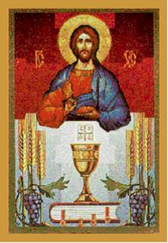



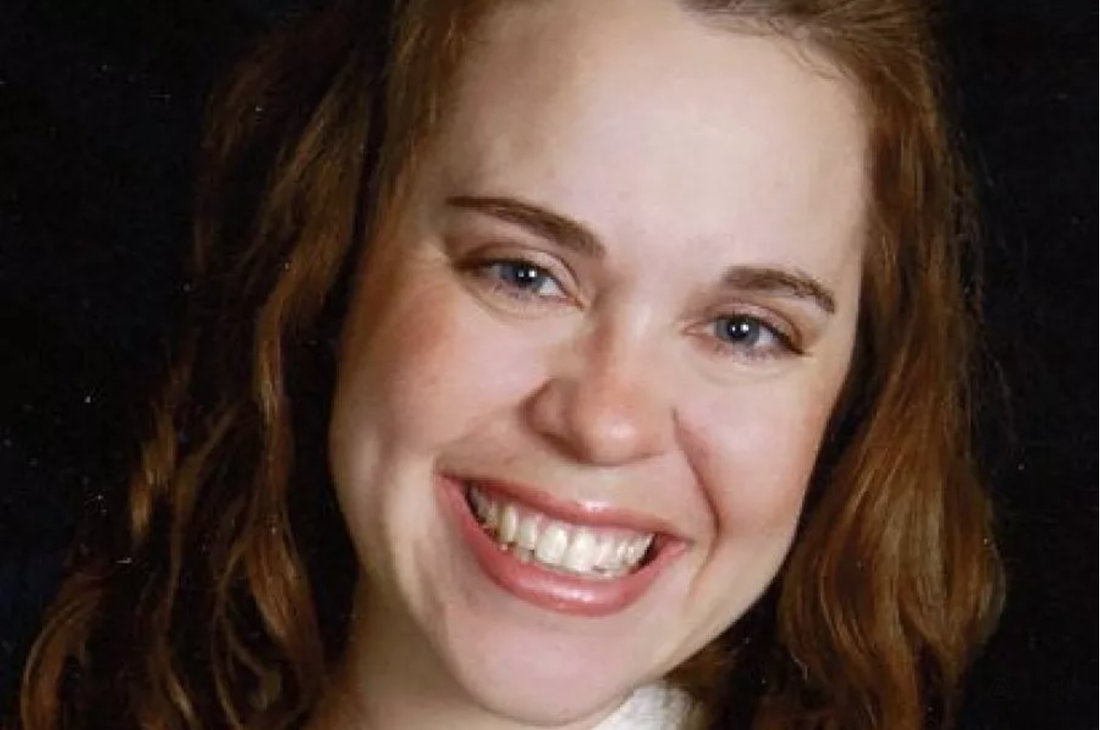

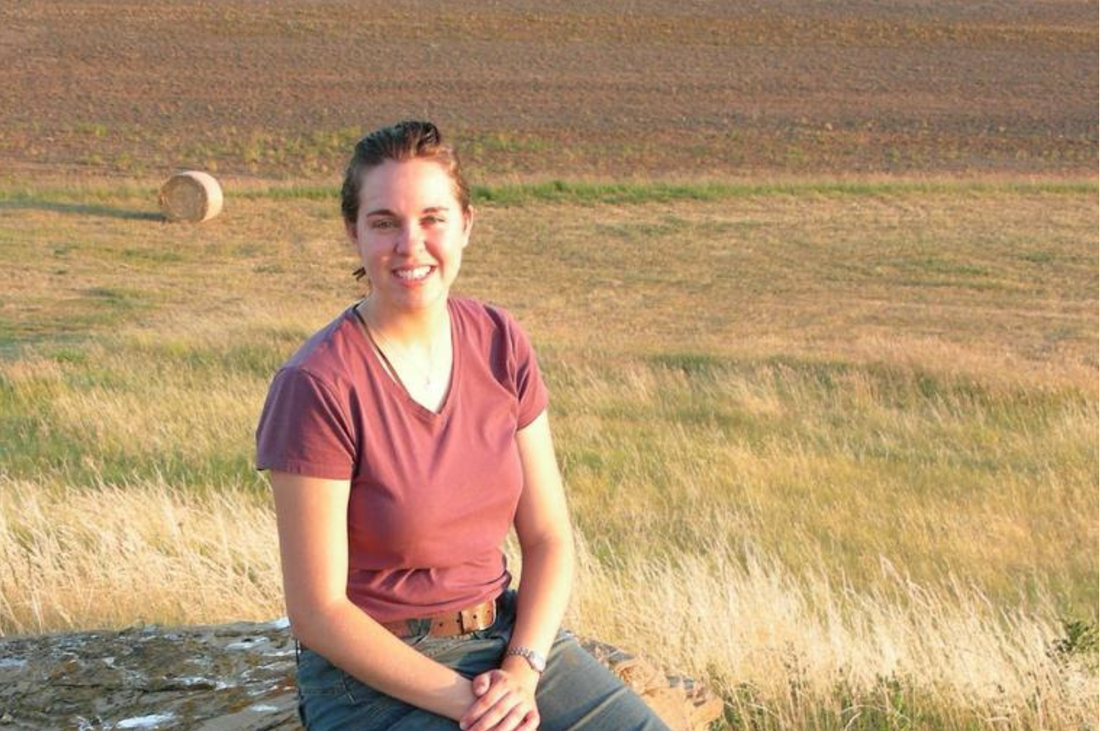
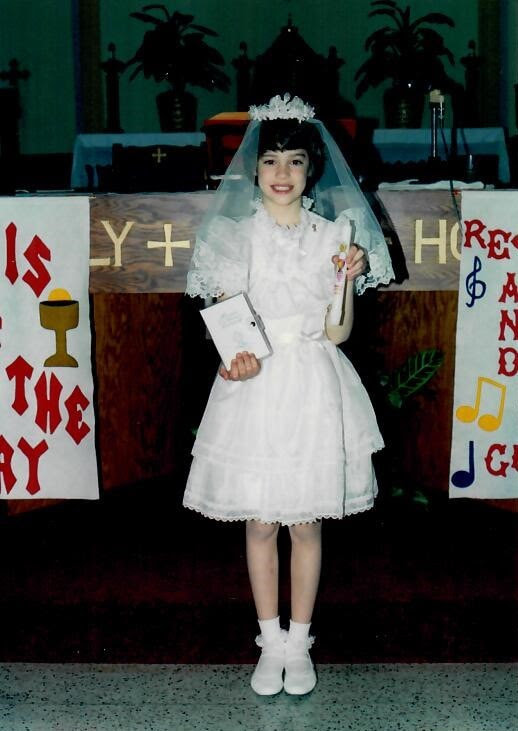
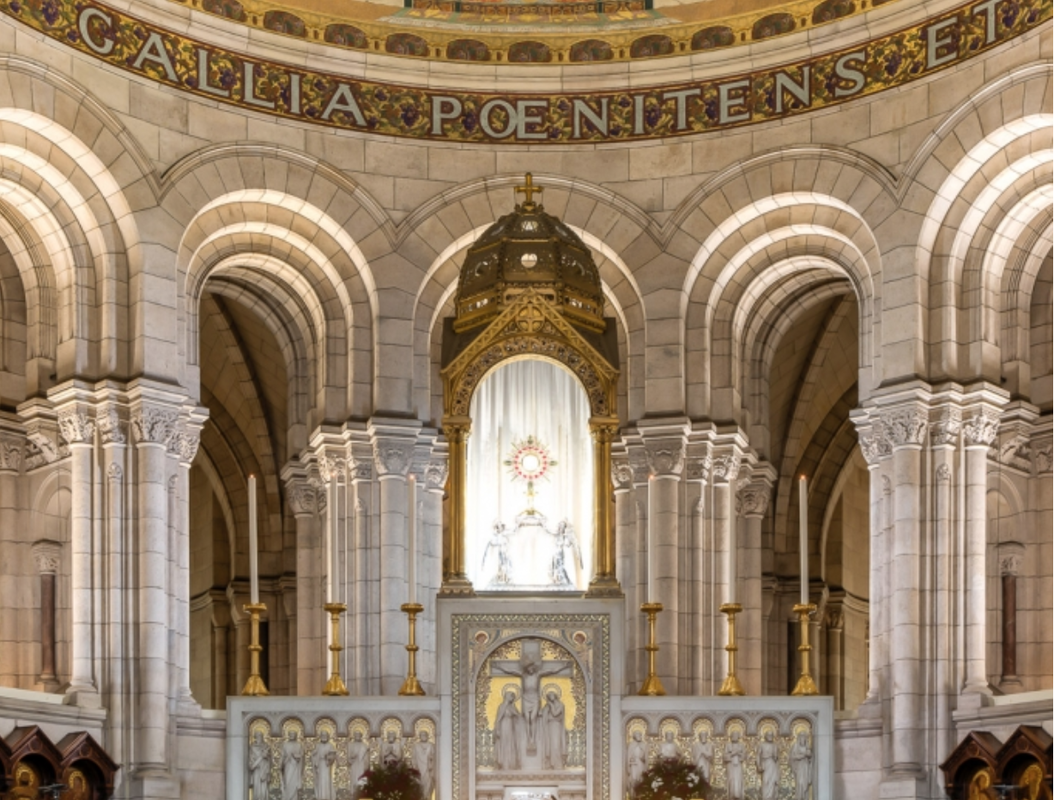


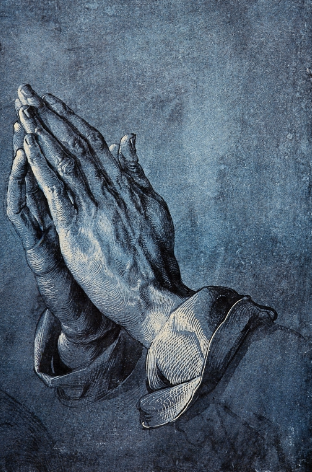
 RSS Feed
RSS Feed
